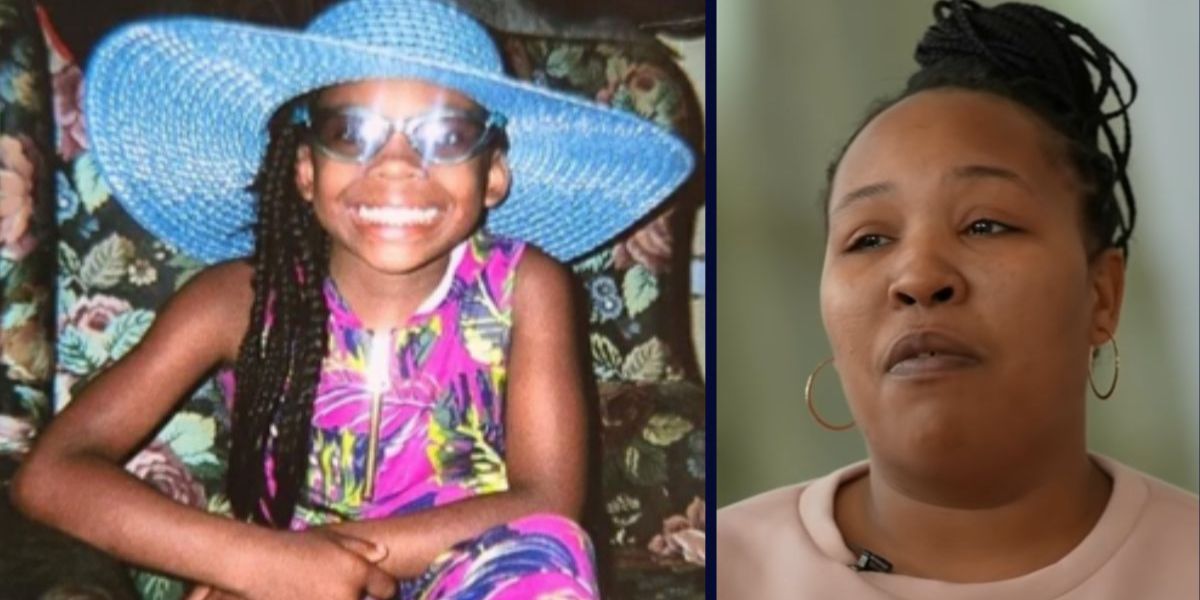The mother of a 10-year-old Pennsylvania child who passed away as a result of taking part in a TikTok challenge has the right to sue the social media giant at this time.
Nylah Anderson reportedly attempted the popular “Blackout Challenge” and asphyxiated herself, leading to her death in December 2021. The “Blackout Challenge… encourages children to choke themselves until passing out,” according to a lawsuit filed against TikTok and parent firm ByteDance.
Tawainna Anderson, Nylah’s mother, discovered her daughter in a bedroom, dangling from a handbag strap. After staying for several days, the girl passed away in a pediatric intensive care unit while undergoing therapy.
Anderson filed a lawsuit against the social media company, claiming that the “app and algorithm are intentionally designed to maximize user engagement and dependence and powerfully encourage children to engage in a repetitive and dopamine-driven feedback loop by watching, sharing, and attempting viral challenges and other videos.”
According to the complaint, “TikTok is programming children for the sake of corporate profits and promoting addiction.”
A federal judge rejected the complaint in October 2022, ruling that Anderson’s allegations were precluded by Section 230 of the Communications Decency Act of 1996, which shields content distributors from liability for communications from third parties.
“Defendants’ algorithm was a way to bring the Challenge to the attention of those likely to be most interested in it,” U.S. District Judge Paul S. Diamond, a George W. Bush appointee stated. “In thus promoting the work of others, Defendants published that work — exactly the activity Section 230 shields from liability.”
Following a recent ruling by the Supreme Court that recognized social media platforms have a First Amendment right to participate in “expressive activity,” a federal appeals court on Tuesday overturned that ruling, concluding that TikTok might eventually be held accountable for Nylah Anderson’s death.
U.S. Circuit Judge Patty Shwartz, a Barack Obama appointee, wrote for the three-judge panel that, “Section 230 immunizes only information ‘provided by another[,]’ and here, because the information that forms the basis of Anderson’s lawsuit — i.e., TikTok’s recommendations via its FYP algorithm — is TikTok’s own expressive activity, § 230 does not bar Anderson’s claims.”
The majority judgment in two cases the Supreme Court heard in July that concerned attempts by Texas and Florida to stop what state legislators referred to as the “censorship” of conservative viewpoints on social media served as a major basis for the verdict. The statutes were determined by all nine justices to be facially invalid.
This structure served as the foundation for the appeals court’s Tuesday ruling that Anderson’s case should proceed.
The judges distinguished between the algorithm created by TikTok and other users that Nylah Anderson could have looked for.
“We reach this conclusion specifically because TikTok’s promotion of a Blackout Challenge video on Nylah’s FYP was not contingent upon any specific user input,” the decision stated. “Had Nylah viewed a Blackout Challenge video through TikTok’s search function, rather than through her FYP, then TikTok may be viewed more like a repository of third-party content than an affirmative promoter of such content.”
Because “in this case, the only distribution at issue is that which occurred via TikTok’s algorithm, which as explained herein, is not immunized by § 230 because the algorithm is TikTok’s own expressive activity,” the court declined to address the distinction between TikTok’s role as a publisher or distributor for the purposes of Section 230.
The courts agreed that Section 230 might in fact preclude any of Anderson’s claims that are “not premised upon TikTok’s algorithm,” but they left it up to the lower court to make that determination.
A partial concurrence and partial dissent were written by Donald Trump appointee U.S. Circuit Judge Paul Brian Matey, who expressed outrage over what he called TikTok’s “casual indifference” to Nylah Anderson’s death.
Anderson’s estate, he claimed, may seek relief for TikTok’s knowing distribution and targeted recommendation of videos it knew could be harmful.
Read Also: Convicted Killer of College Student in 1994 to Be Executed in Florida
Matey claimed that the rights afforded to content distribution platforms by Section 230 law had grown to be “nearly-limitless.”
“It is a position that has become popular among a host of purveyors of pornography, self-mutilation, and exploitation, one that smuggles constitutional conceptions of a ‘free trade in ideas’ into a digital ‘cauldron of illicit loves’ that leap and boil with no oversight, no accountability, no remedy … But it is not found in the words Congress wrote in § 230,” he stated.











Leave a Reply